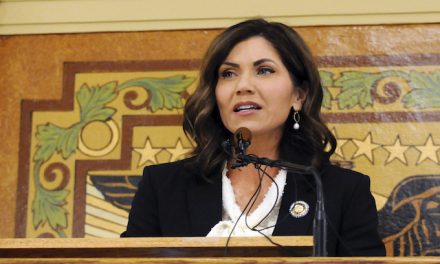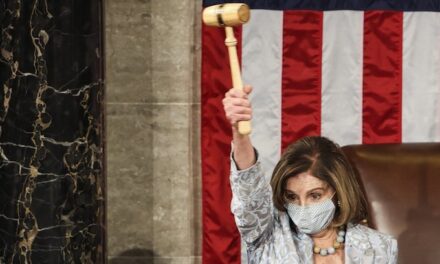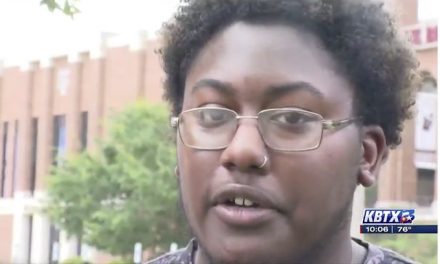Pat Withrow, the San Joaquin County sheriff, survived a bout with COVID-19 last summer. Dozens of inmates and staff at the county jail also have tested positive.
So it was with a good deal of alarm that Withrow reported last week that many of his deputies are reluctant to take the new coronavirus vaccines. The same is true, he said, for a shocking number of healthcare workers in the region.
“If you want to help small businesses in our area, then get vaccinated — just go out and get vaccinated,” he told the Board of Supervisors. “That’s when our businesses will be able to open. That’s when our schools will be able to open — when we reach that critical mass of enough people having been vaccinated.”
Withrow urged the county to embark on an educational campaign to encourage people to get their shots. For now, across the state, that appears to be about as far any government official is willing to take it, despite having legal authority to mandate workers to get vaccines in order to get paid.
The same is true in Sacramento, El Dorado and other neighboring counties. The city of Sacramento also is adopting a voluntary policy.
California Gov. Gavin Newsom — whose administration is struggling to enforce facemask orders and other policies — isn’t planning to require the hundreds of thousands of state workers to get vaccinated, according to a spokeswoman for his office. Newsom last week asked the Legislature to spend $372 million to improve vaccine distribution, including a “public awareness campaign to increase vaccine adoption,” according to his budget proposal.
The same voluntary policies pervade the private sector, too — even in frontline industries facing down massive outbreaks. Hospitals throughout California are making the shots voluntary for their doctors, nurses and other employees.
But will vaccines remain voluntary forever? As the pandemic worsens and California’s COVID-19 death toll surges past 29,000, experts believe that at some point, some government and private employers will have to make the vaccines mandatory for workers as supplies become more readily available.
“If we don’t use the best weapon we’ve got, we’re going to be isolating, masking and testing for years,” said Arthur Caplan, a professor of bioethics at New York University’s Grossman School of Medicine. “Plus, we’re still going to have the economy damaged and unable to recover, and we’re still going to be arguing about opening schools forever.”
Instituting a mandatory vaccine policy could generate considerable legal and ethical problems, despite experts like Caplan saying the vaccines are safe and nearly every eligible person needs to be vaccinated for American life to return to normal.
Employees covered by union contracts would in all likelihood be exempt, legal experts say. Employees also can claim exemptions on religious grounds or because of existing medical disabilities.
Employers are required by federal law to make “reasonable accommodations” for those who refuse to get vaccinated — a step that could include physically isolating them from their co-workers, said Elizabeth Stallard, a labor-law specialist at the DowneyBrand law firm in Sacramento.
Above all, fighting human nature may be the biggest enemy. If the goal is to get as many people vaccinated as possible, it could backfire as people push back against the government dictating what they put in their bodies.
That’s particularly true, ironically, in the healthcare sector.
As a practical matter, hospitals don’t want “to enforce a rule against the will of a significant number of people,” said Lisa Ikemoto, a UC Davis law professor who specializes in healthcare law. “Making it voluntary may be the most effective way to get compliance.”
Even state Sen. Richard Pan, D-Sacramento, a physician who has spearheaded legislation to close loopholes that allow parents to keep their school-age kids from getting vaccinated against childhood diseases, said he’s leery about any mass COVID-19 vaccine mandates for adults.
Instead, he expects more people will get over their hesitancy as they see their friends, family members and neighbors get the shots and have no ill health effects.
Plus, he said, many businesses — airlines, cruise ships and the like — are going to eventually require proof of vaccination for customers. Pan said when people “really want something,” such as going on a vacation, they’ll get vaccinated.
” ‘No mask; no service;’ ‘No vaccine; no service,’ ” he said. “That’s up to the business.”
For the moment, though, vaccine hesitancy is widespread, and threatening to push recovery from the pandemic further out of reach.
A Kaiser Family Foundation survey in mid-December found about one in four about one in four Americans are unlikely to take the vaccine. What’s more, the survey found nearly one in three of America’s healthcare workers won’t get vaccinated.
Some California hospitals are reporting that as many as half of their employees aren’t getting vaccinated. Reports are emerging of vaccines spoiling and getting tossed in part because so many people first in line to receive the shots are refusing them.
Kaiser Permanente has vaccinated more than 47,000 of its Northern California employees; it wouldn’t say how many have refused.
“I was mostly surprised to see how many of my colleagues are pretty vocal about their skepticism,” said Heather Olmsted Hamlin, an emergency department nurse at Kaiser’s South Sacramento hospital who insisted that she wasn’t speaking on behalf of her employer.
“I understand people want to feel like they have control (of what goes in their bodies). But just because of the things we’ve been seeing and the restrictions that we have in our lives and around the country around the world, and how badly people want to get back to normal, it’s really, really shocking and disappointing to see,” she said.
Federal law gives employers a right to mandate a vaccine as a condition of employment, if they choose.
But experts say medical centers and other front-line employers are reluctant to impose a vaccine requirement because it’s not been tested in court whether they can do the same with these new COVID-19 vaccines.
That’s because the newly released vaccines are being distributed under what’s known as an “emergency use authorization.”
“That means they were allowed to come out based on very positive safety and efficacy data early, but it may be difficult to have the government or employers impose a mandate because you don’t have a licensed product yet,” said Caplan, the medical ethics expert.
Other experts such as Ikemoto, the UC Davis professor, said that for now, much of the reluctance to mandatory vaccination in hospitals comes down to staffing. Hospitals, overwhelmed by the influx of patients and staff members coming down sick, already are struggling to keep enough workers on the clock to care for patients.
If workers start opting out because they don’t want a vaccine, that only exacerbates the staffing shortages, Ikemoto said.
“They can’t afford at this point in the crisis to lose healthcare providers,” she said. “They don’t want to fire people; they don’t want to move people into a different kind of work where they don’t have contact with patients.”
Precedent for compulsory vaccines
The U.S. Supreme Court in 1905 ruled that states battling smallpox could impose “compulsory” vaccine mandates for everyone, with limited exceptions.
The ruling has allowed states to require vaccinations for children before they attend public schools, members of the military to undergo a whole host of shots upon enlisting and vaccinations in a handful of other professions, such as daycare workers.
Once hailed as a public health miracle that eradicated polio, smallpox and a host of other diseases in America, more than a century later, distrust in vaccines is at an all time high, fueled in large part by a sea of online nonsense and conspiracy theories.
But experts also caution that many Americans, who might otherwise support COVID-19 vaccinations, will push back at statewide mandates over the government telling them what to do with something as personal as their own bodies.
California’s recent history shows that opposition to vaccine mandates can be fierce, especially from those who believe strongly in the debunked claims that vaccines are harmful.
In 2019, an anti-vaccine activist assaulted Pan after the state senator introduced a bill restricting the number of exceptions parents could claim to opt from vaccinations before attending schools. Later, an anti-vaccine activist threw a container of menstrual blood at lawmakers on the floor of the Senate. Newsom signed Pan’s bill.
Local edicts also have run into pushback. Shasta County’s health officer last year issued an order that required healthcare workers to receive a flu vaccine, but she ended up rescinding it after angry members of the public, including some healthcare workers and members of the Board of Supervisors, said it was infringing on the workers’ personal freedoms.
Some of the resistance to get COVID-19 vaccines may be fueled by conspiracy theories, but the reluctance to get a new vaccine pushed out under the name “Operation Warp Speed” is predictable and understandable, especially in light of how the pandemic has been politicized, said Dorit Rubinstein Reiss, a legal expert on vaccines at UC Hastings College of Law in San Francisco.
“People are not familiar with it and are more nervous, and the process has been faster than usual,” she said. “And that will automatically raise concern, especially for people who are not familiar with the process.”
Dr. Jake Scott, an infectious disease expert at Stanford University, said he, too, “can understand why people might be skittish for a number of reasons.”
But those concerns aren’t founded.
He said the vaccines being administered now were tested on tens of thousands of people in carefully controlled studies, and the studies found no serious complications among those who received them.
“At this point, we’re not really seeing any significant risk,” Scott said.
The ingredients in the vaccine are safe, and aren’t making people seriously ill, causing infertility or any of the other wild claims people are claiming about them online, Scott said.
“I really don’t feel like there were any corners cut with these vaccine studies,” Scott said in an interview last week, an hour before he was to get the second dose of one of the vaccines.
The vaccines were able to be produced so quickly because the technology behind the mRNA vaccines has been in development for years, he said.
It also helped that governments threw billions of dollars into their development, bypassing a lengthy process in which drug companies typically have to convince “financial investors to provide enough money to take it to Phase 1,” Scott said.
“Otherwise, these vaccine trials went through all of the typical phases that the trials would normally go through. And there were huge numbers. I mean, these were big studies,” he said.
That said, there’s always a small risk of complications with any drug, Scott said.
The most common reactions people have to the vaccines are swelling around the injection site and low-grade fever and mild flu symptoms that typically fade within a day or two. Scott said that’s a sign “our immune system is working” and that “we’ve earned the immunity.”
Vaccine acceptance will take time
But it’s going to take time to convince skeptics that the benefits of getting the shots far outweigh the risks of catching a sometimes lethal virus.
Peggy Jahani is one of the healthcare workers with a “wait and see” approach to the vaccine.
She’s a telephone “appointment and advice” nurse who normally works in a Kaiser call center in Sacramento. For the past few months, she and other nurses have been allowed to work from home.
Jahani said some of her co-workers “are a little bit leery. I’m kind of leery, but I want to get it.”
Her reluctance stems from a previous bout of Bell’s palsy — a temporary condition that causes muscles to sag on one side of a person’s face. Jahani said she fears that the vaccine could lead to a relapse.
The Food and Drug Administration has said a few participants in the clinical vaccine trials developed brief bouts of Bell’s palsy, though it wasn’t clear to researchers whether it was caused by the vaccination. People who’ve experienced Bell’s palsy are still encouraged to get the vaccine, according to the U.S. Centers for Disease Control and Prevention.
Nonetheless, Jahani said she’ll likely get the vaccine, but wants to wait for more people to get it first.
“I want to be sure the vaccine has been proven to be safe enough,” she said. “I feel it’s imperative that we (healthcare workers) get this at some point. That’s the only way we’re going to get herd immunity.”
Olmsted Hamlin, the Sacramento emergency room nurse, said she’s normally pro-choice about what she calls “bodily autonomy,” but she would support making vaccines mandatory for her colleagues.
“It’s a choice to work in healthcare,” she said. “It’s a choice to work in a specific hospital; no one’s making you do it. It’s not a right. It’s not something you’re being forced to do. And you’re taking care of vulnerable people, and you are around coworkers that have to be around you. At that point, I think it’s different.”
___
(c)2021 The Sacramento Bee (Sacramento, Calif.)
Visit The Sacramento Bee (Sacramento, Calif.) at www.sacbee.com
Distributed by Tribune Content Agency, LLC.
—-
This content is published through a licensing agreement with Acquire Media using its NewsEdge technology.



















I can hardly wait for the mandatory vaccine cards, brought to you by the communists.
MANy of us called it.. They will, if they can’t get enough folks willing to comply, FORCE IT on us…
GET YOUR mark of the beast.. OR ELSE.
I will take the vaccine when it is administered to my cold dead body.